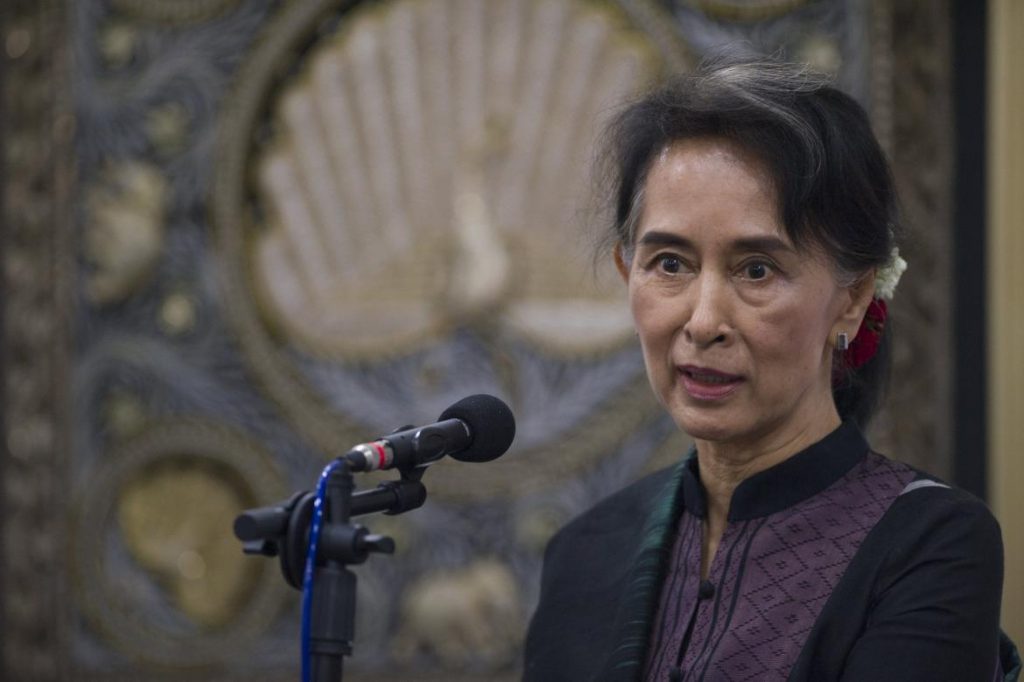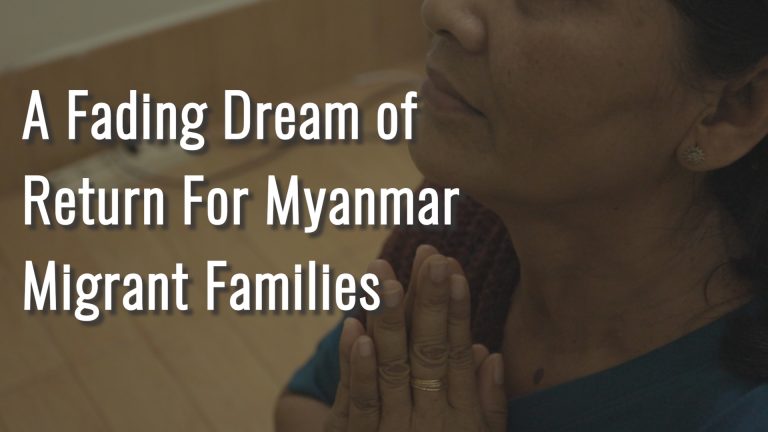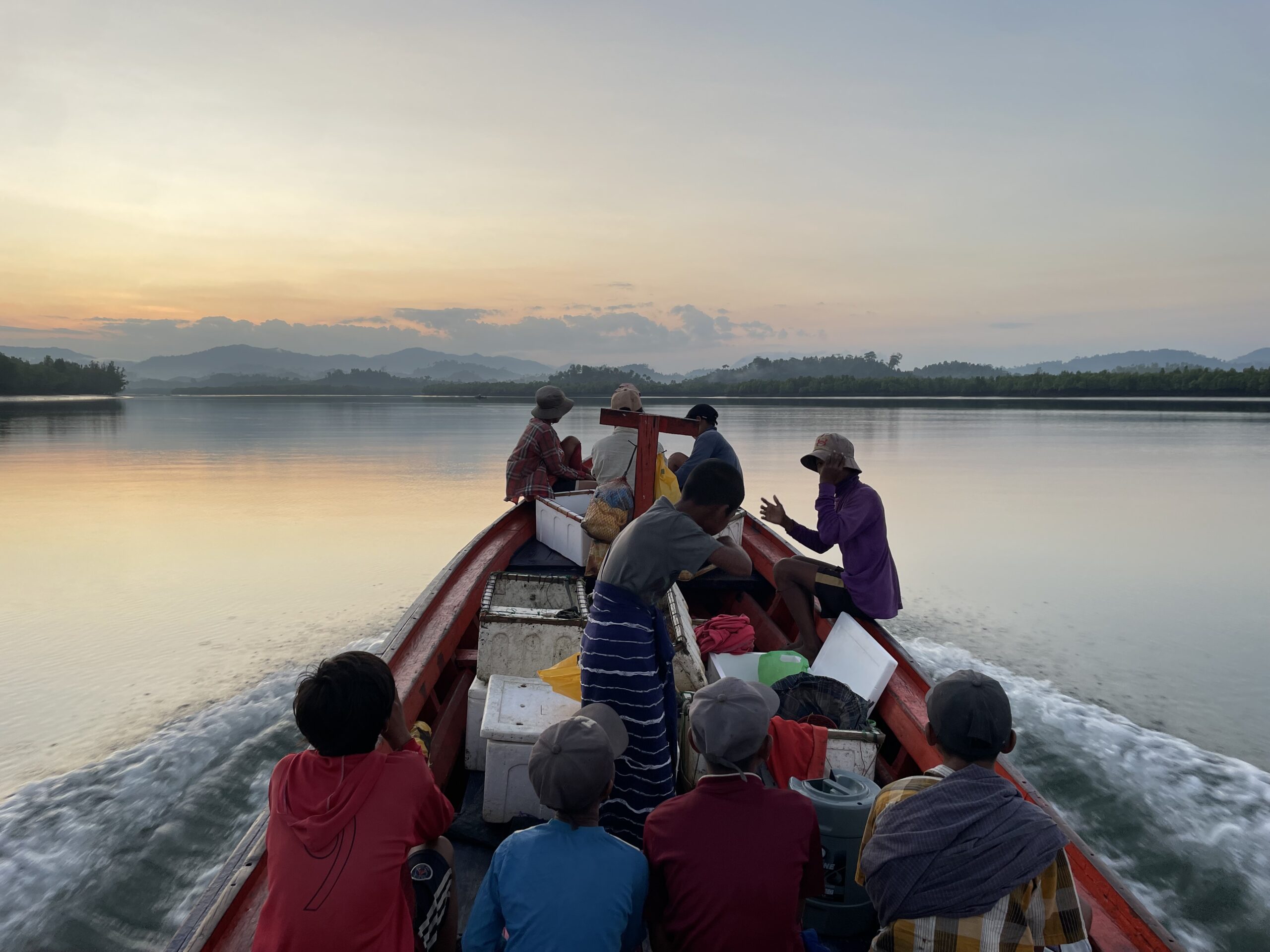By AFP
BANGKOK — Daw Aung San Suu Kyi arrives Thursday in Thailand where she is expected to meet with her adoring compatriots, hundreds of thousands of whom have sought work and sanctuary from war across the border.
It is Suu Kyi’s highest profile overseas visit since her pro-democracy party took power in April, ending nearly half a century of military domination.
Her government has seeded hopes for a new era of prosperity that could eventually convince the army of low-paid Myanmar labourers in Thailand to return home.
The two Southeast Asian neighbours have travelled in starkly different directions in recent years.
Support more independent journalism like this. Sign up to be a Frontier member.
While Myanmar’s junta has rolled back its chokehold on politics, last year allowing the freest elections in decades, Thailand remains in the grip of a military that seized power in 2014.
As Myanmar’s democracy champion, Suu Kyi is expected to receive a rock star welcome during a visit to a fishing village in Samut Sakhon later Thursday.
The port, just outside Bangkok, is the seat of Thailand’s huge seafood industry and home to more than 100,000 low-paid Myanmar labourers.
The visit “fills me with hope,” Myanmar migrant Thon Barami, 50, told AFP at the scruffy port.
“We have problems here in Thailand. She might help us with labour rights… people all around the world will listen to her,” she added.
The fishing sector has been battered by revelations of the use of slave labour and the widespread exploitation of workers.
The scandals have prompted threats of sanctions by the European Union — a key market for the multi-billion-dollar Thai seafood industry.
Low pay, lower status
Seeking to escape poverty at home, some one million registered Myanmar migrant workers form the backbone of Thailand’s manual workforce.
Tens of thousands of others work illegally, with some estimates putting the total number of Myanmar nationals in Thailand at three million.
Rights groups say migrants — legal and otherwise — are vulnerable to unscrupulous officials, trafficking gangs and employment agencies who charge huge sums to get them poorly paid work.
Their low status also sees them treated with scorn and mistrust by many Thais.
“They all want to go home, but they are just waiting for the economic situation (in Myanmar) to improve significantly,” explained Andy Hall, a migrant rights activist with an office in the port town.
The nemesis of Myanmar’s generals throughout a quarter-century of struggle for democracy, the Nobel laureate will meet with the leader of the Thai junta in Bangkok on Friday.
But her schedule does not include a single press conference as Suu Kyi continues to fiercely control her government’s messaging.
The 71-year-old is officially Myanmar’s foreign minister and state counsellor, but also the de facto leader of her country despite a military-era constitution that bars her from the presidency.
It is unclear if she will make a scheduled trip to a refugee camp in Ratchaburi province on Saturday.
It is one of nearly a dozen camps in Thailand holding more than 100,000 refugees who have fled conflict in Myanmar.
Many are ethnic Karen displaced by war with Myanmar’s army. The violence abated following a 2012 ceasefire, but conflict with other ethnic rebel groups continues.
Thailand, which does not accept refugees, wants to repatriate camp residents — some of whom have been born on Thai soil but are barred from citizenship.
Suu Kyi is also not scheduled to visit any of the Thai centres holding hundreds of Rohingya boat migrants, a Muslim group who have fled poverty and persecution in western Myanmar.
Campaigners say her failure to throw her moral weight behind the stateless minority is a boon to Myanmar’s Buddhist hardliners who loathe the Rohingya and say they are illegal immigrants.
In a sign of the sensitivity clouding the Rohingya question, a talk at the Foreign Correspondents’ Club in Bangkok just ahead of Suu Kyi’s arrival was cancelled on military orders.







